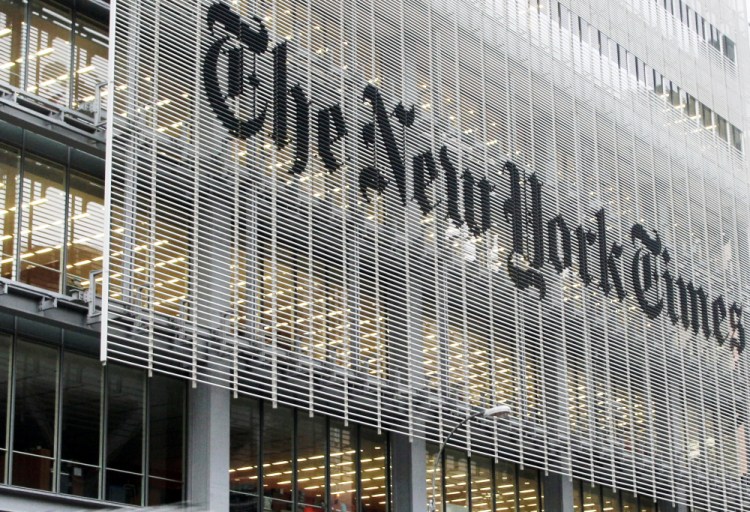The journalists whose investigations ignited the #MeToo movement – shaking workplaces and entire industries around the U.S. over the last year and heralding a new era in gender politics – received top honors at Monday’s announcement of the Pulitzer Prizes.
Writers at The New York Times and New Yorker magazine shared the prestigious prize for public service for publishing bombshell investigations revealing mistreatment of women by Hollywood mogul Harvey Weinstein and other powerful men.
In the investigative reporting category, The Washington Post won for uncovering allegations that Alabama U.S. Senate candidate Roy Moore sexually mistreated teenage girls decades ago. The reporting, published during the campaign, was a decisive factor in Moore losing the once-safe Republican seat to a Democrat.
The winners of the Pulitzer Prizes – print journalism’s highest honors – were announced at Columbia University in New York.
The awards come at a time when journalists’ work have been under siege by an array of forces: social media platforms that draw away readers and help promulgate hoaxes; declining advertising revenues and private equity owners that slash reporting jobs; and a White House whose relationship with the press can be described only as adversarial.
In the national reporting category, The New York Times and The Washington Post shared an award for their dogged reporting into the connections between Russia and President Trump, with the publications one-upping each other with scoop after scoop – a newspaper war for the 21st century.
The Arizona Republic and the USA Today Network won the prize for explanatory reporting for scrutinizing the complications in Trump’s plans for a wall on the U.S.-Mexico border, and the Cincinnati Enquirer won the local reporting prize for its coverage of the heroin epidemic.
For the third year in a row, a California newspaper collected the prize for breaking news as the Santa Rosa Press Democrat won for its coverage of last year’s devastating wildfires in Sonoma County.
Last year, the East Bay Times won the award for its coverage of the deadly Ghost Ship fire at an Oakland warehouse. The Los Angeles Times won in 2016 for its coverage of the San Bernardino, Calif., mass shooting.
The award in the commentary category was given to John Archibald of the Alabama Media Group.
Andie Dominick of the Des Moines Register won the award for editorial writing for commentary on Iowa’s privatization of Medicaid, and New York magazine art critic Jerry Saltz won the award for criticism.
Reuters collected the award for international reporting for its coverage of Philippine President Rodrigo Duterte’s deadly war on drugs. The wire service also collected the award for feature photography for its work documenting the plight of Rohingya refugees fleeing Myanmar.
Rachel Kaadzi Ghansah won the feature writing award for a GQ magazine profile of Charleston, S.C., gunman and white nationalist Dylann Roof. Ryan Kelly of the Daily Progress in Charlottesville, Va., won the breaking news photography award for a harrowing shot of a car driving into a crowd of anti-racism protesters during a white nationalist rally in that city last year.
In the editorial cartooning category, Jake Halpern and Michael Sloan won for a series about refugees in The New York Times.
Send questions/comments to the editors.



Success. Please wait for the page to reload. If the page does not reload within 5 seconds, please refresh the page.
Enter your email and password to access comments.
Hi, to comment on stories you must . This profile is in addition to your subscription and website login.
Already have a commenting profile? .
Invalid username/password.
Please check your email to confirm and complete your registration.
Only subscribers are eligible to post comments. Please subscribe or login first for digital access. Here’s why.
Use the form below to reset your password. When you've submitted your account email, we will send an email with a reset code.